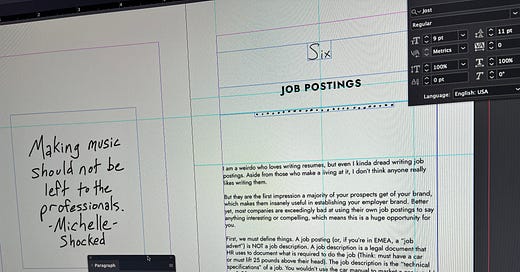Have you seen anyone with “ex-JCP Penney” or “Ex-Circuit City” in their profile?
Is anyone wearing Blockbuster swag for anything other than ironic reasons?
Who’s bragging about their time at Periscope, Pets.com or Lehmann Brothers?
I know I haven’t seen that. Have you?
I wouldn’t have expected to. These companies are seen as failures, be they strategic or execution flops. Or maybe the world just passed them by.
But time working at these companies was meaningful for lots of places. Think of the thousands of people who learned the ropes of their industry while toiling away at Yahoo! or Vine?
I spent summers working at Blockbuster during college, and while swiping people’s cards and rewinding videos in bulk didn’t exactly put me on the path to employer branding, it certainly sharpened my work ethic and gave me perspective on how other people work and why they work (and the value of checking out a good subtitled film to watch after the shop closed at midnight).
But the person who worked at these failed companies aren’t in any way responsible for the company’s failure, are they? Did my mis-shelving of Hook lead to Blockbuster’s downfall? Probably not.
So why aren’t people putting those brands on a shirt and wearing it to the grocery store?
The easy answer is “pride.” That they have pride in having been part of something successful, a company that people might recognize, whose success reflects positively on the wearer.
There is, I suspect, a deeper driver at work.
Beyond the raw success and recognizability, people imbue their personal and professional identity with the brand identity of the places they worked.
The person with “ex-Google” in their LinkedIn wants you to think that they were smart/clever enough to get into Google, much like someone who went to Wharton wants you to know that they were smart enough to get into that school.
The person with “ex-Facebook” on their profile wants you to know that they survived and thrived in a place where disruption is ongoing and perpetual, suggesting that they too have that “move fast and break things” ethos written on their DNA.
But if we didn’t see Google or Facebook (or Wharton, for that matter) as a place for smart and disruptive people, if we didn’t think of their brands that way, what does that say about the people who work there?
Doesn’t that mean that the employer brand shapes how people see themselves?
And how does that change your own communications strategy?
+++++
If you enjoyed Talent Chooses You 🍍, you’ll remember it as a big book about a bunch of big ideas. I even prefaced it by saying it was a “philosophy book” more than anything.
My new book is the opposite.
Employer Branding for Small Business is a very compact book. It is focused on tactics and step-by-step instructions recruiters and TA leaders can use immediately to take advantage of their brand. Think of it as the ‘small but mighty’ book that makes recruiting and hiring better in a company of any size.
Some books give you theory and empty promises. James gives you straight fire and ammunition to make your employment brand stand out in a crowded market!
- Tim Sackett, author of The Talent Fix
***This Newsletter Contains No ChatGPT***
###






I received an e-mail solicitation today and their leadoff lie was,
"Looking for experienced and dedicated recruiters?
We have worked with companies like AWS (Amazon Web Services), HMSHost, Starbucks, and many others. "
I thought that was timely and fitting with your daily snippet today.